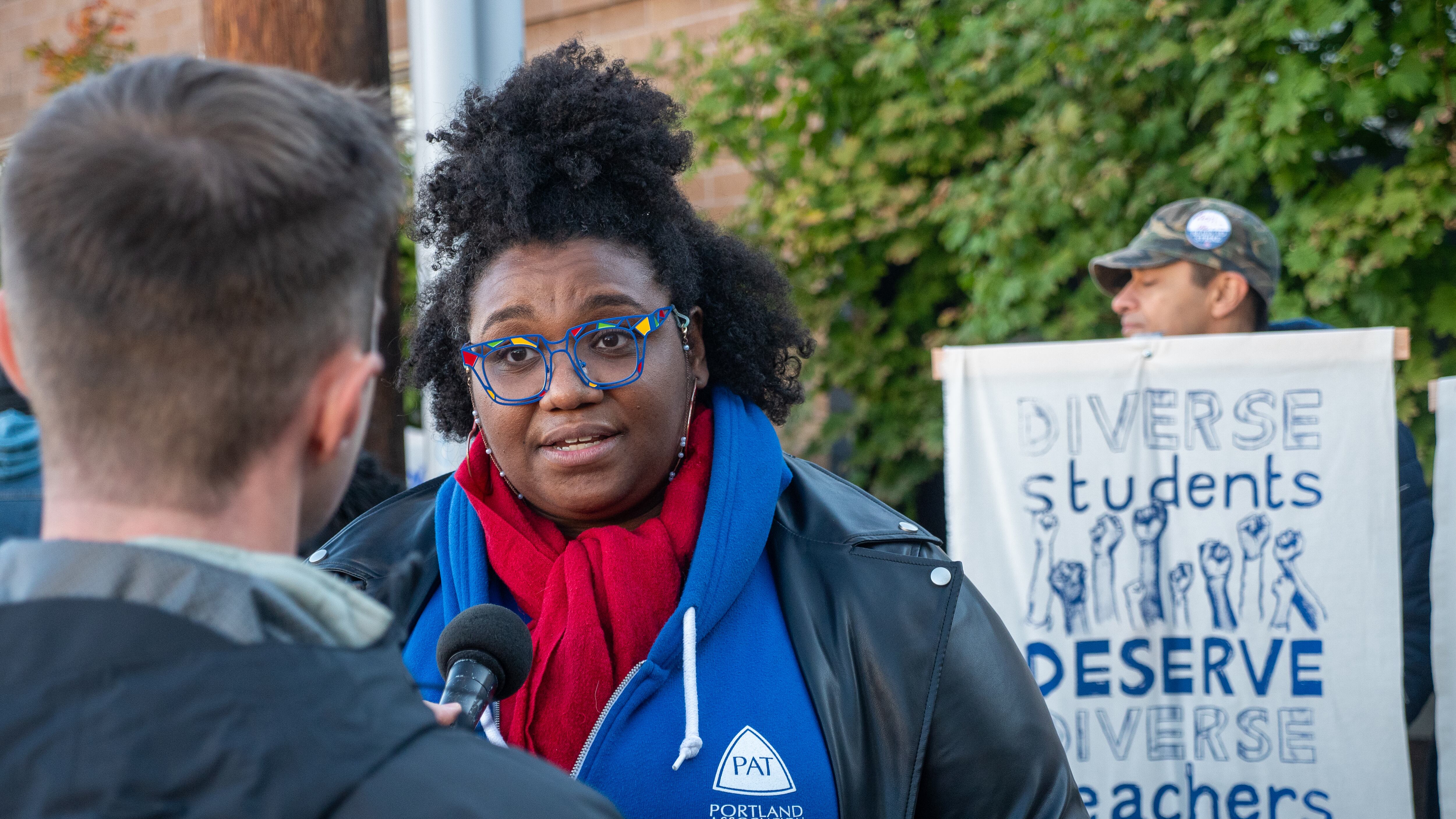The Portland Association of Teachers penned a letter over the weekend expressing “strong” opposition to admitting the Portland Police Association to the Northwest Oregon Labor Council, the largest labor coalition in the state.
“Adding PPA to a labor coalition is contrary to actions and positions PAT has taken about police reform, actions that PPA has fought,” PAT president Angela Bonilla wrote on behalf of the union’s executive board. ”In addition, many of our members have been personally brutalized by police."
Complicating the matter, the teachers’ union is itself not a member of the labor council, though Bonilla said in her letter that the PAT has considered joining. The inclusion of the police union, Bonilla wrote, would mean the teachers’ union would “not consider joining” the council.
The issue of the police union’s membership in the labor council blew up earlier this month. As WW reported, the executive board of the NOLC voted almost unanimously in March to include the PPA in its membership ranks.
But the Portland chapter of the Democratic Socialists of America decried the move, saying the final decision about which unions are accepted into the labor group should be made by the member unions themselves—not the executive board. (The Portland chapter of the DSA has been closely aligned with PAT leaders in recent years.)
Laurie Wimmer, executive secretary-treasurer of the Northwest Oregon Labor Council, changed course after the backlash and said she would defer the final decision to member unions in a vote on April 28. Wimmer has since said the coalition changed course because of a dispute over the process, not because of the backlash over the police union itself.
That’s today. But the vote has been delayed by “a couple of months,” Wimmer told WW on Monday morning. She did not say why the vote had been postponed, but she wrote in a weekend email to coalition delegates that “we found a process matter that we’d overlooked in our eligibility determination work that we’ll now back up and fix before we bring this forward.”
Wimmer said earlier this month that this was the first time any of the coalition’s members have taken issue with the process by which unions are brought under the labor council’s umbrella.
“Nineteen months ago, we admitted the other three unions. No one ever said anything about a process. No one ever said a word. Everyone said, ‘Yea, you,’” Wimmer told WW at the time. “So it wasn’t until police, whom they’ve decided to, as a class, dislike, that they then started making it about process. The process argument is a canard.“
Still, Wimmer said she would “err on the side of union democracy and give every voice the opportunity to be expressed” by taking the PPA admission to a vote of the full council membership. “We’ll let union democracy prevail and ask everyone to respect that outcome,” she added.
Members of the Portland City Council have kept mum on the issue, saying it’s an intralabor dispute that must be resolved from within—but Councilor Angelita Morillo recently responded to a question on her personal Instagram account about whether councilors might “weigh in” on the labor council’s vote to include PPA. Morillo replied: “I think considering the history of police breaking up union strikes this deserves some serious consideration lol.”
Teachers’ union president Bonilla wrote in her April 27 letter that the NOLC executive board’s decision to admit the police union was “antithetical to the ideal to ‘vanquish oppression.’”
“When top-down decisions are made without communicating with and listening to the members of your organization, your are mirroring the systems of oppression we must work to dismantle,” Bonilla wrote, later adding: “PPA is not part of the labor movement. Police, by definition and in practice, are used to protect property over people, especially during labor disputes or public push back against police brutality.”
Bonilla took the letter further.
She wrote that the “police use of their office and resources to target, intimidate and attack any elected, but especially elected officials of color, is unacceptable. The leaking of false information against our first and only Black woman City Councilor at the time, Jo Ann Hardesty and now the attempt to intimidate Councilors Morillo and Kanal…shows that the PPA will always take the side of maintaining power.”
Bonilla was referring to uniformed officers showing up at the town halls of two city councilors, Angelita Morillo and Sameer Kanal, earlier this year. The union has strongly rejected the accusation that the officers were there to intimidate the two councilors, both of whom have been vocal critics of the Portland Police Bureau.
Police union president Aaron Schmautz did not respond to the accusations laid out in the union’s letter.
Instead, he wrote that as the husband of a teacher, “I understand how hard teachers and their unions are working. We stand in solidarity with the PAT in their focus in advocating for their members ability to provide world class education to young Portlanders.”
